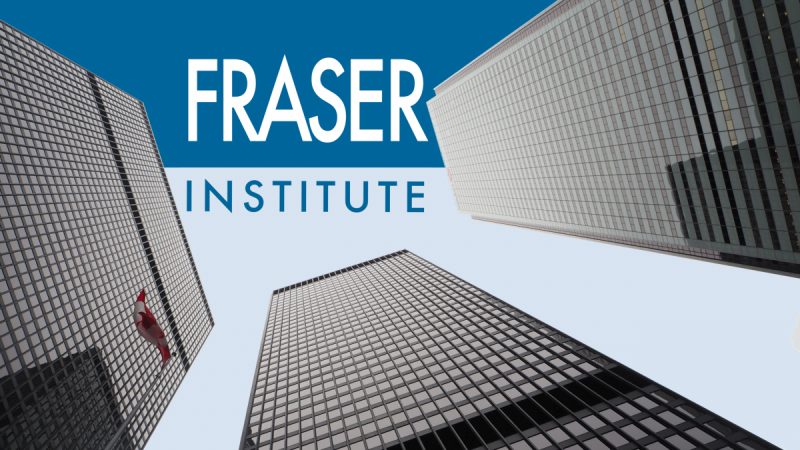More fibs from the Fraser Institute

Fraser’s typical line is to depict Canada’s economic order as some sort of progressive spending frenzy which needs to be countermanded by severe austerity. This is not true. Image by Canadian Dimension.
In Canada, there are several major right wing think tanks, which generally enjoy favourable coverage from the mainstream political press. In the absence of countervailing institutions on the left, these groups operate without oversight and frequently publish misstatements and lies.
The Fraser Institute’s most recent commentary, a critique of the Trudeau government’s fall economic statement, is a great example. Fraser’s longstanding position is that Canada is somehow a left-wing country (despite being to the right of almost every other developed nation). Because of the delta between the truth and Fraser’s position, their critique is an amusing exercise in right-wing spin.
The first critique Fraser lodges is that Canada is already spending at “record high levels.” This is not true. As a proportion of GDP, Canada spends dramatically less than it did in the early 1990s, for instance. Canada’s government spending from 1991-1993 was over half of GDP. Currently, Canada spends about 40 percent of GDP, which is relatively low compared to other developed countries. The commitments made in the fall economic statement don’t indicate any real change in those topline figures.
Of course, productivity gains mean that the value of this spending in real dollars has increased over time. The proportion of government spending in the economy, however, has decreased over the past few decades and is quite low. This critically limits public infrastructure and welfare, among other priorities.
The second major point that Fraser makes is that increased spending may produce high inflation. This is misleading, as inflation is currently being driven by four major Consumer Price Index items in Canada: cars, meat, real estate, and gasoline. Generally speaking, there has not been a run up in prices caused by greater spending power. Instead, inflation has been driven by supply chain and material shortages (cars, meat, gasoline) and domestic supply problems (real estate). Absent the dramatic spike in cost of goods in those four categories, inflation would be at normal levels.
The pandemic-related increase in government spending has nothing to do with such inflation. Instead, the inflation that we are currently experiencing is mostly a product of COVID-related disruptions in production. Most developed countries, even countries that did not introduce major pandemic spending programs, are experiencing significantly elevated inflation as well.
The final pain point that Fraser identifies is that Canada has an aging population and this will put a large strain on government revenues and expenditures. However, this phenomenon is largely offset by Canada’s aggressive immigration policies, which mostly add middle and upper-income workers in prime employment ages. As a result, Canada won’t face the sort of steep generational decline experienced by Japan and some European countries.
Still, Fraser coyly suggests that “a change in policy” may be appropriate for addressing the increased number of recipients of elderly welfare programs like the Canada Pension Plan and Old Age Security. At the risk of stating the obvious, a reduction in benefits here would produce an increase in elderly poverty and destitution. Canada already has meagre old-age benefits, and uncomfortably high rates of elderly poverty among some demographics. These benefits should be expanded, not cut back.
Fraser also identifies that deficits are a problem. This is true, but they should be solved by increasing taxes, not decreasing spending. Our tax level, which is well short of equalling our spending and has been for many years, is indeed fiscally irresponsible.
Fraser’s typical line as per usual is to depict Canada’s economic order as some sort of progressive spending frenzy which needs to be countermanded by severe austerity. This is not true. Canada’s general economic policy is already conservative, with low social spending, large tax breaks for property owners, and paltry government revenues. Increasing that conservatism would be needless, cruel, and bad policy.
Oliver Mackenzie is a Victoria-based video producer and writer who works for a variety of government, nonprofit, and media clients.

